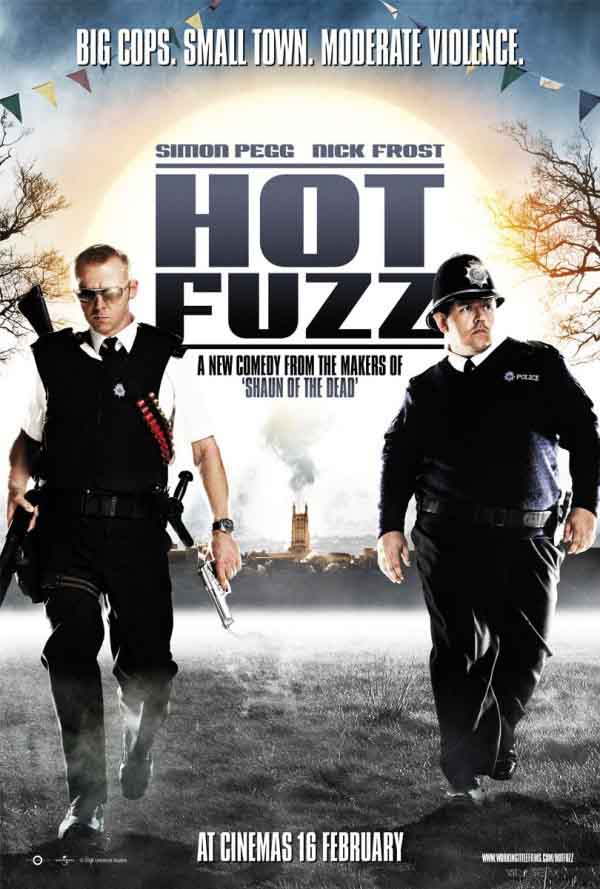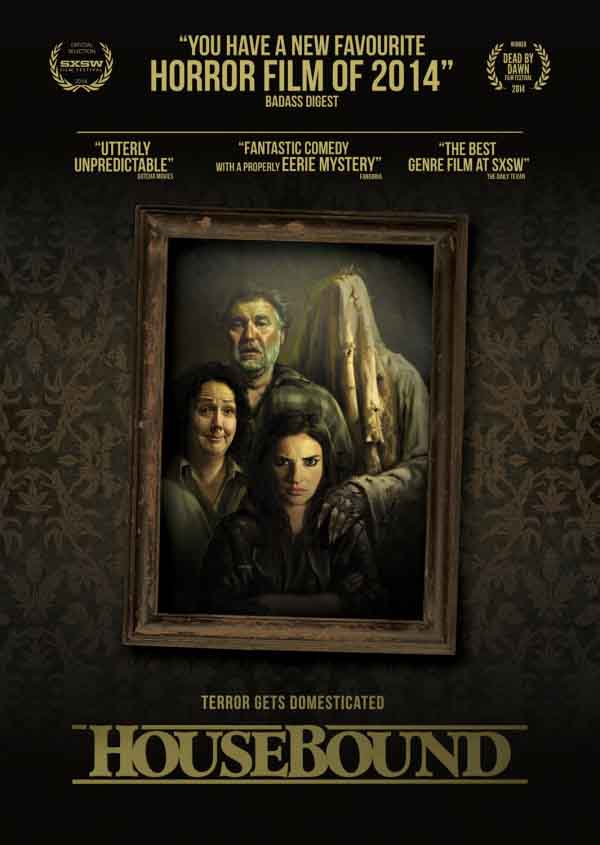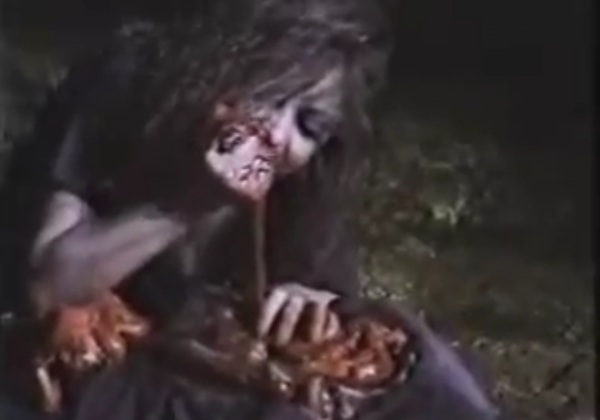In the grand tradition of send-ups like Naked Gun, Tropic Thunder and Tucker and Dale Versus Evil, this goofy UK film tears apart movie stereotypes and cliches while providing relatively harmless laughs. It bears no relation to reality and exists solely as distraction but serves an important role in revealing movie tropes for the empty and implausible scenarios they are.
As in most good films, it begins with hyperbole and descends into satire. A super-cop from the city moves to a small town where he finds that mysterious deaths are going unreported. He investigates and finds a dark secret to this idyllic and seemingly useless place. Because of his inner conviction that law and order is important, he takes on the bad guys with impossible odds against him. Since this is a family film, there are no major surprises in the plot, and the filmmakers focused on texture instead. Like most films of this genre, internal plot features are repeated in different contexts to achieve both continuity and contrast. Characters, while one-dimensional, also exist as people with relatively complex motivations formed from a balance of self-interest and goodwill. What initially seem like simply stereotypes expand to show the reasons behind the behavior, reducing the implied mindlessness of lifestyle choices. This allows the filmmakers to mutilate, spindle and destroy those roles and bring out the absurdity of our time.
Comedy cannot be bloodless. In this film, the prime targets are the vast hypocrisy of a society that, like the idyllic town in this film, has given up on finding reason for its actions. It operates on rote, driven by money and obedient to mindless rules, and these two behaviors get the most ire. Throughout the movie, classic movie moments are revisited and destroyed with mockery. Characters twist and erode their own character types of the type one might expect in a Hollywood blockbuster. Through it all, the film manages to make its characters likeable by showing them as relatively simple people working on simple rules that they have found generally guide them to the right places in a world that is chaotic and beyond control. While no surprises or great profundity come from Hot Fuzz, what makes it powerful is that in the process of satirizing a situation, and then movies themselves, it also mocks the absurdity of our current era and the uselessness of people within it. Like all good comedy, this approach results in well-needed laughs and increasing cynicism toward “the way things are always done around here.”
11 CommentsTags: comedy, fish 'n chips, movie, tea, violence




